Share Your Stories
YEAR OF NEWS :

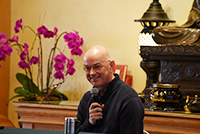
Monday, November 30, 2015
On Saturday, November 21st, there was a Dharma talk at DDVC on “Chan in Everyday Life”, presented by Zarko Andricevic from Croatia, who is a direct Dharma heir of Master Sheng Yen. He explained the cultural differences between China and India that led Chinese monks to abandon the practice of begging and become self-sufficient. The Chinese monastic system left less time for sitting meditation, so meditation began to be incorporated into working, farming and other chores.
In modern times, people tend to do everything in a rush. This creates tension, leading to superficial actions and alienation from our activities. Everything becomes one big chore. He emphasized the importance of bringing Chan practice from the insulated world of the Chan Hall into the chaotic realm of everyday life, this being a key goal of The Path.


On Saturday, November 21st, there was a Dharma talk at DDVC on “Chan in Everyday Life”, presented by Zarko Andricevic from Croatia, who is a direct Dharma heir of Master Sheng Yen. He explained the cultural differences between China and India that led Chinese monks to abandon the practice of begging and become self-sufficient. The Chinese monastic system left less time for sitting meditation, so meditation began to be incorporated into working, farming and other chores.
In modern times, people tend to do everything in a rush. This creates tension, leading to superficial actions and alienation from our activities. Everything becomes one big chore. He emphasized the importance of bringing Chan practice from the insulated world of the Chan Hall into the chaotic realm of everyday life, this being a key goal of The Path.
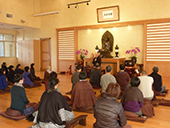
I am very thankful for the opportunity to attend the Silent Illumination 7-day retreat taught by Teacher Zarko Andricevic during November 14 – 21, 2015 at Dharma Drum Vancouver Center. I came to the retreat with a question about which meditation method I should continue to use in my practice. Teacher Zarko’s teaching was clear and easy to follow. His words were precise; he explained the method several times in different ways. He used a few short stories and images to illustrate the idea. After seven days learning and practicing, I have gained a much better understanding of the method and have decided to practice Silent Illumination with confidence from this week. Thanks to Teacher Zarko.
On the first evening, Teacher Zarko started with an introduction of the method - basically samatha and vipasyana were practiced simultaneously. He introduced the teaching of the Sixth Patriarch Huineng of Chan Buddhism, as well as the three doors of liberation. He also reminded us to cherish the opportunity to practice wholeheartedly during the entire retreat.
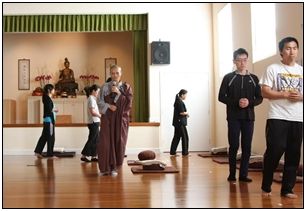
Since 1994, I have attended the 7-day Chan retreats for college students held by Nung Chan Monastery, Dharma Drum Mountain. After 21 years, I have finally had a good mediation at this 3-day Chan retreat.
For a long time, I could not count the number of my breaths and I had a problem with either counting the breath or feeling sleepy while practicing meditation. Fortunately, an interview with the monastic at this retreat helped me realize something about mediation.
In the interview, I asked Monastic Guo-Huei(果暉法師) about these issues he told me that I could employ the method of chanting the Buddha’s name. One idea suddenly came to my mind was that I can use chanting practice all the time while walking and eating, not merely in sitting meditation. I continued using this chanting practice until the next day and after practicing Eight-Form Moving Meditation in the morning session, I could feel relaxed completely so that I felt at peace and ease in sitting mediation. I felt extremely light from my head to toes and even though I still knew my legs existed, there was no pain at all.
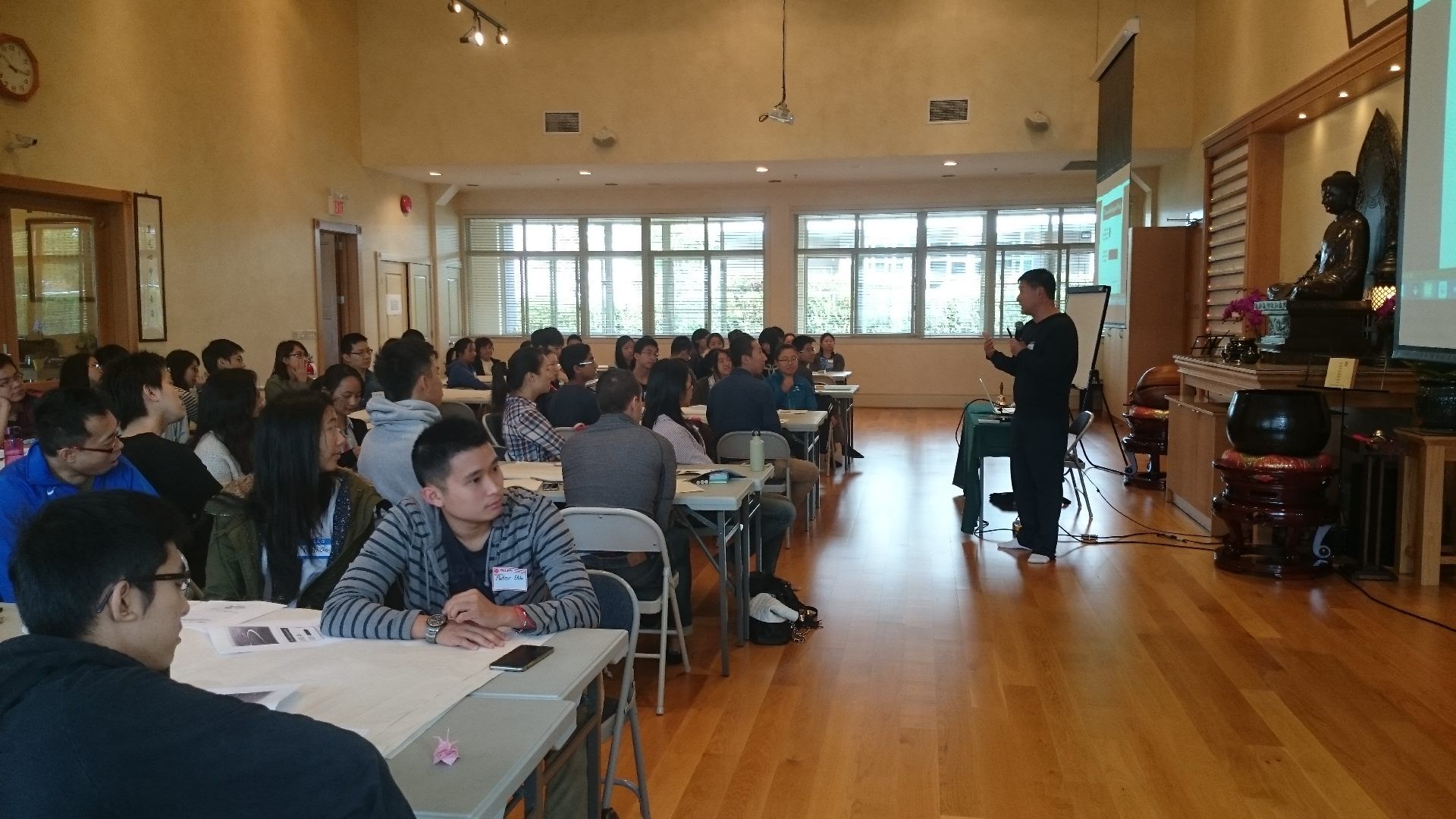
First of all, I would like to thank the fashi’s, volunteers , participants, Alan Chang and everyone who made this wonderful event happen. I learned a life-transforming lesson from this workshop – it had a positive and significant impact on my future path of life and career. Like Alan said, usually people pay a lot of money to get a training like this. In the temple, not only we got it for free, it was filled with wisdom, care and encouragement. I would like to share three most inspiring lessons I learned from this workshop.
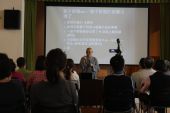
I remember last year a veteran volunteer of Care Service Group asked the Dharma teacher to shed light on a question: “How can we urge and advise devotees afflicted by troubles to ‘let go’?” The monastic replied, “We don’t advise others to ‘let go’ when we ourselves haven’t really experienced and realized ‘letting go’.” Not long ago, I heard a long-time devoted supporter of ours claim: “I’ve achieved letting go.” So, I deeply feel that many people have actually misunderstood and misapplied the Buddhist expression, “letting go” (放下), when they haven’t deeply delved into practice and attained thorough enlightenment. This is why ancient patriarchs and masters seldom used this expression in teaching the Dharma. After all, in our short life of cultivation, understanding our self is already as hard as looking for a needle in a haystack, not to mention entering the stage of letting go of what is “mine,” which is an even longer journey to go.

Hello, my name is Tim Dai. I joined Dharma Drum Vancouver Center about two years ago, and I have recently taken refuge in the Three Jewels at this Center. Also, I have started volunteering at the Center which teaches me lessons that have benefitted me enormously. I’m happy to share what I’ve learned from the experience.
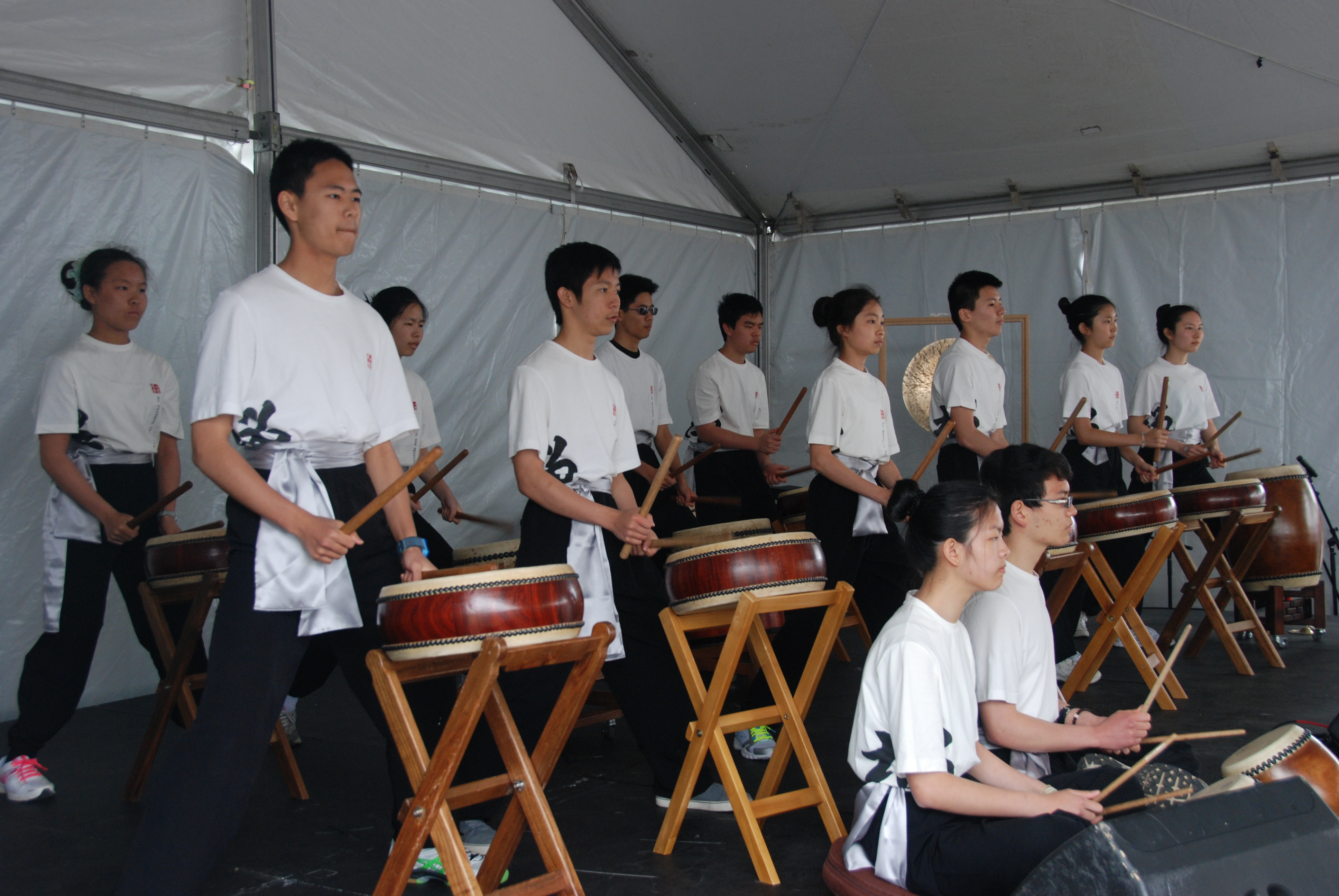
Today was Sunday, May, 24, 2015; it wasn’t a normal typical day, it was Buddha’s Birthday. It started out with me panicking and trying to remember exactly what I was supposed to do in the drumming performance. Even though deep down I knew the song perfectly, for some reason I needed to be a perfectionist and play the song with everything I had because I knew everyone was counting on us to perform a show that nobody would forget.
 (18).JPG)
Over the past eight months, I’ve been busy with relocating, decorating new home, and entertaining visiting friends and relatives, as well as familiarizing myself with the new neighborhood and possible routes to avoid traffic jam. Meanwhile, as I’m just starting my own business, new challenges keep emerging almost every day. To put it nicely, I am learning by living, and living by learning; but to put it frankly, my nerves are on edge.
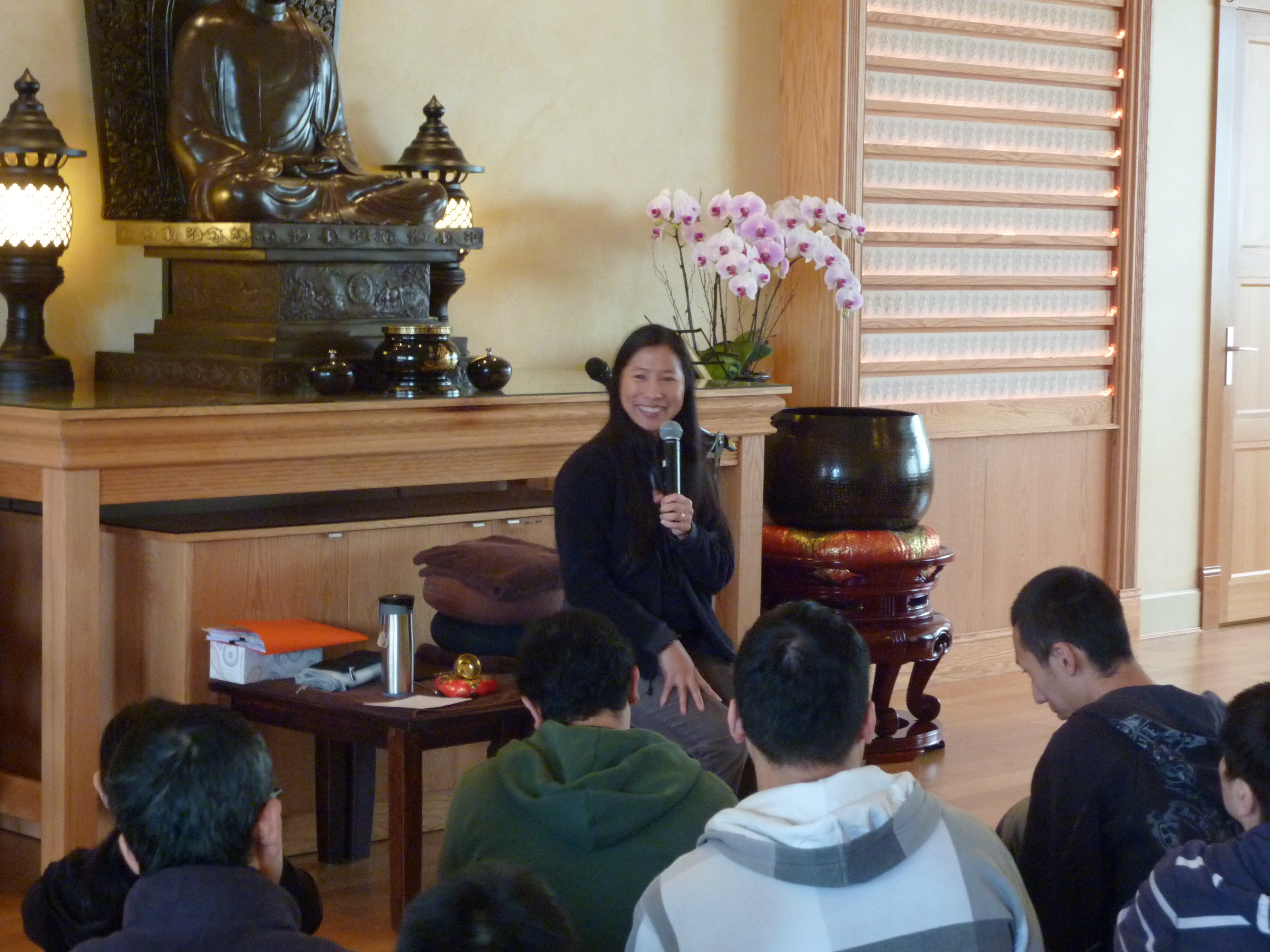
This is my fear before the Beginner’s Mind Retreat:
- Not talking for a whole weekend?!!
- Vegetarian for the whole weekend?! Am I going to be starving or fainted?
- Meditate for the whole weekend? Never done that before!

In general, we can say that all liberated beings (aryas), such as arhats and buddhas, have thoroughly penetrated the Four Noble Truths. And because these truths pervade the understanding of these holy beings, we call them noble. They are also called noble because by understanding and practicing them, we too can reach liberation.

PAGE :
1
2
3
4

|